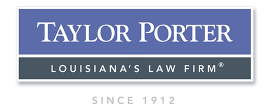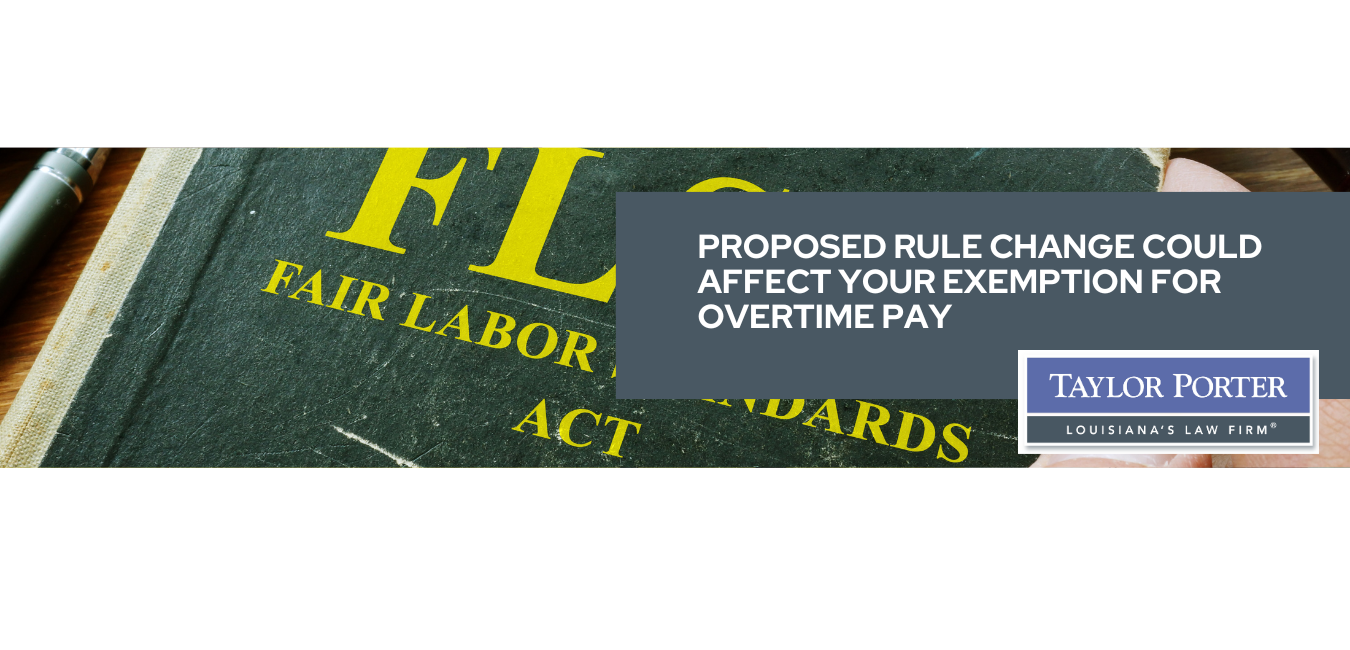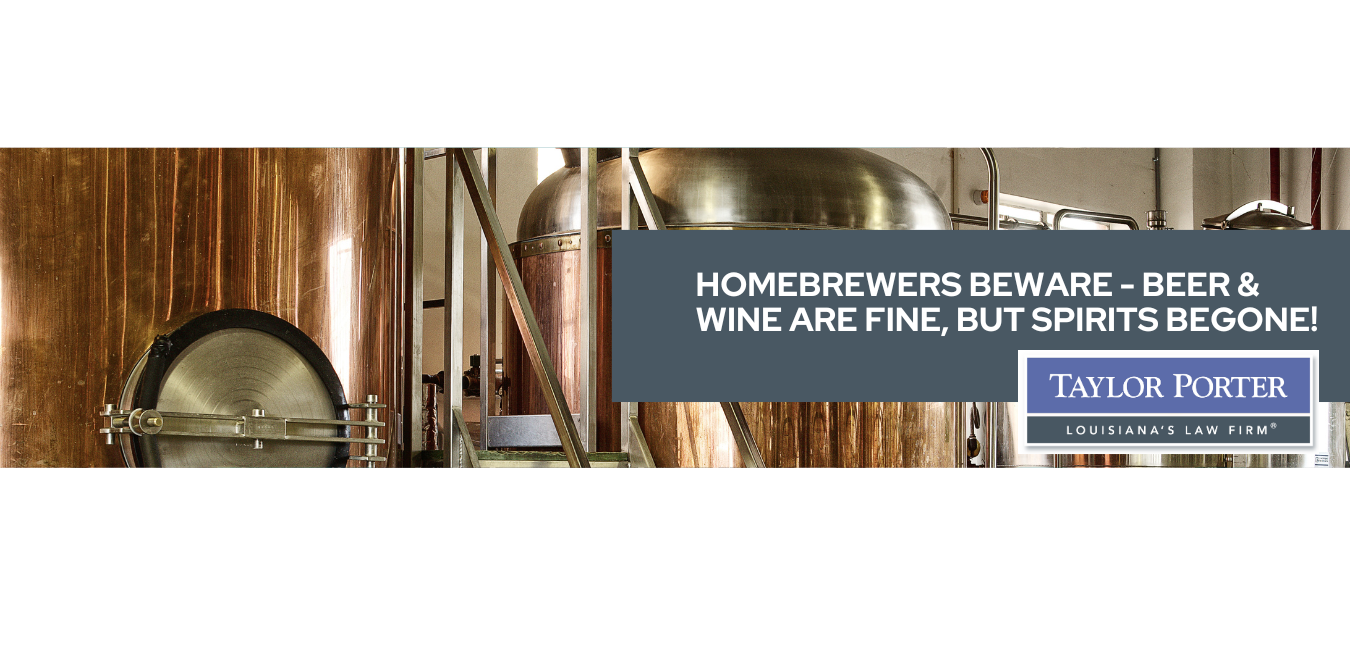EEOC and OSHA: Updated Guidance


By Vicki Crochet - Partner, Employment, Labor and Benefits Practice Group Leader;
Executive Committee Vice-Chair vicki.crochet@taylorporter.com
and Rick Norman - Special Counsel, Employment, Labor and Benefits Attorney;
Lake Charles Office rick.norman@taylorporter.com
Both the EEOC and OSHA have recently issued updated guidance related to COVID-19. This article discusses aspects of both sets of guidance and is not an exhaustive description.
EEOC Guidance
On April 9, 2020, the Equal Employment Opportunity Commission (EEOC) updated its technical assistance. The full article can be accessed at:
https://www.eeoc.gov/eeoc/newsroom/wysk/wysk_ada_rehabilitaion_act_coronavirus.cfm
Highlights include:
- Permissible Inquiries regarding COVID-19 Symptoms
- In its previous guidance, the EEOC identified possible COVID-19 symptoms about which an employer could ask an employee. In its updated guidance, the EEOC acknowledges that the lists of symptoms has been expanded by the CDC and others. Employers are encouraged to rely on the CDC, public health authorities and reputable medical sources regarding symptoms. For example, additional symptoms about which an employer may question an employee include loss of smell or taste and gastrointestinal problems.
- In its previous guidance, the EEOC identified possible COVID-19 symptoms about which an employer could ask an employee. In its updated guidance, the EEOC acknowledges that the lists of symptoms has been expanded by the CDC and others. Employers are encouraged to rely on the CDC, public health authorities and reputable medical sources regarding symptoms. For example, additional symptoms about which an employer may question an employee include loss of smell or taste and gastrointestinal problems.
- Reporting a Positive COVID-19 Diagnosis
- The EEOC states that it is permissible for an employer to notify a public health agency when it learns an employee has COVID-19 and to identify that employee by name. Further, a staffing agency or a contractor that places an employee in a workplace may notify the employer if it learns that the employee has COVID-19. This will enable the employer to determine if the employee has had contact with anyone in the workplace.
- The EEOC states that it is permissible for an employer to notify a public health agency when it learns an employee has COVID-19 and to identify that employee by name. Further, a staffing agency or a contractor that places an employee in a workplace may notify the employer if it learns that the employee has COVID-19. This will enable the employer to determine if the employee has had contact with anyone in the workplace.
- Employees/Applicants who are at High Risk for COVID-19
- An employer may not postpone the start date or withdraw a job offer because an individual is in a high risk category. The guidance specifically references individuals who are 65 or older and pregnant women. The employer may allow such an employee to telework or, with the agreement of the individual, postpone the start date of employment.
- An employer may not postpone the start date or withdraw a job offer because an individual is in a high risk category. The guidance specifically references individuals who are 65 or older and pregnant women. The employer may allow such an employee to telework or, with the agreement of the individual, postpone the start date of employment.
- Reasonable Accommodation
- An employer may have to consider additional accommodations for individuals who are at higher risk for COVID-19 or who have pre-existing mental illnesses or disorders that may be worsened by the COVID-19 pandemic. This is particularly true when a job can only be performed at the workplace, as opposed to remotely. Additionally, regardless of the disability, a different type of accommodation(s) may be needed for a remote workplace even if not needed in the regular workplace. The guidance mentions low cost solutions, such as one way aisles, using plexi-glass or other barriers and job shift restructuring. Further, an employee already receiving accommodations may be entitled to additional accommodation as a result of COVID-19.
OSHA Guidance
On April 10, 2020, the Occupational Safety and Health Administration (OSHA) issued enforcement guidance for recording cases of COVID-19. The full article may be accessed at: https://www.osha.gov/memos/2020-04-10/enforcement-guidance-recording-cases-coronavirus-disease-2019-covid-19
Highlights include:
- Generally, OSHA will not require employers to determine if an employee’s COVID-19 illness is work related. OSHA will assume it is not work related unless there is evidence to the contrary, such as a number of infected employees working closely together where there is both no alternative explanation as to how the infection occurred and the employer should have known about the infection. In this circumstance, COVID-19 may be a recordable illness.
- Employers who fail to make an adequate effort to keep their employees safe from COVID-19 infections, such as through maintaining social distancing, providing protective gear, and providing time to wash hands, could be investigated and cited under the General Duty Clause.
- Because N95 masks are scarce, the OSHA field officers will exercise enforcement discretion concerning mask fit testing requirements.
If you have any further questions, please do not hesitate to contact any member of the Taylor Porter Employment, Labor & Benefits Practice Group.
This website is for general information purposes only. Information posted is not intended to be legal advice. For more information, please see our Disclaimer message.
See how we can help. Contact us today
8th Floor • 450 Laurel Street • Baton Rouge, LA 70801 • 225-387-3221
- Disclaimer
- © Taylor, Porter, Brooks & Phillips L.L.P. All rights reserved.






